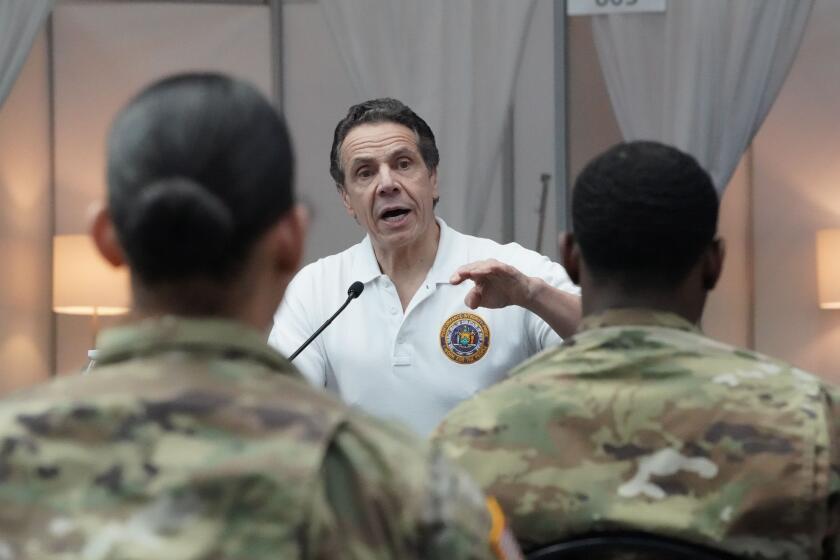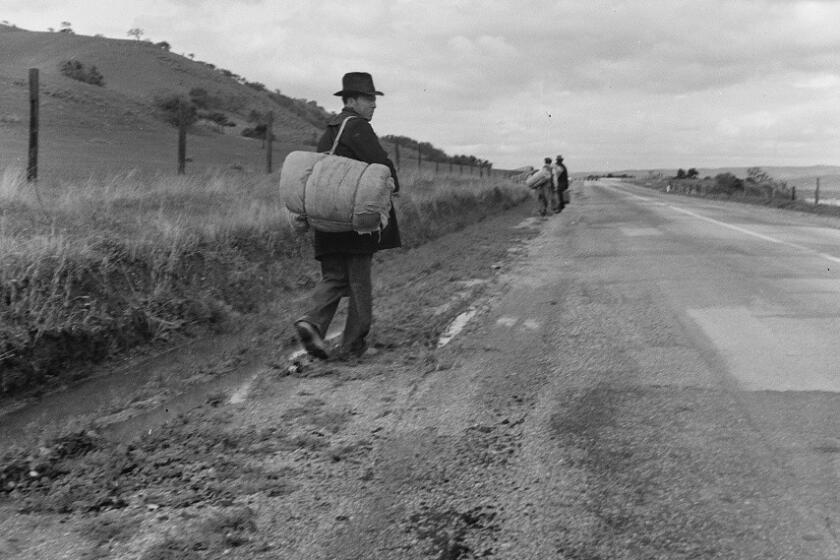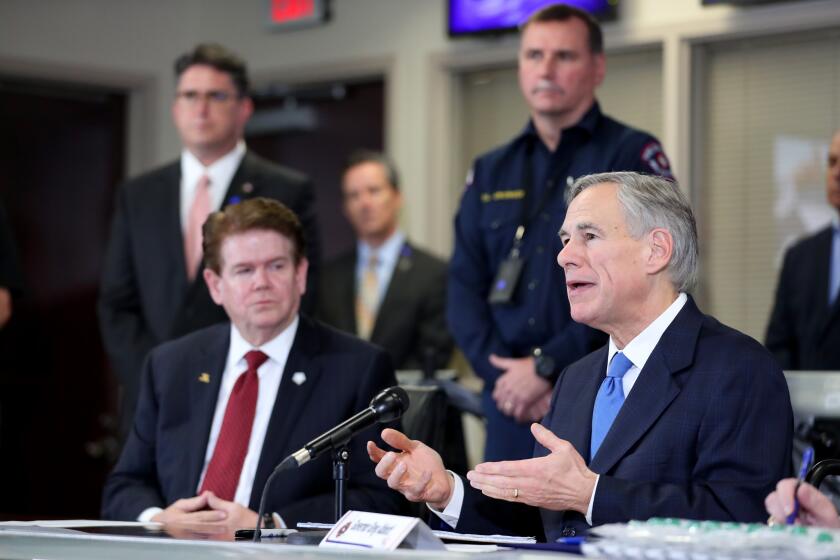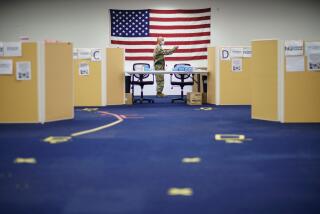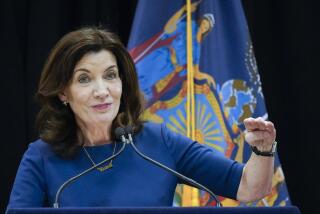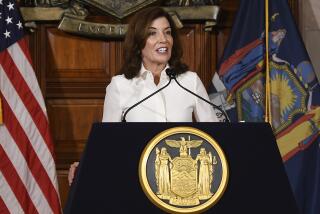Coronavirus deaths hit one-day highs in New York and New Jersey
- Share via
New York state set a one-day record of 731 deaths from COVID-19 on Monday even as a drop in new hospitalizations suggested that the rate of infections could be slowing down, Gov. Andrew Cuomo said Tuesday.
New York remains the hardest hit state, with 5,489 deaths, Cuomo said. New Jersey is next with 1,232 deaths, followed by Michigan with 845, Louisiana with 582 and California with 395, according to officials and data reporting. Nationwide, more than 12,000 people have died.
At the same time, New York’s overwhelmed hospital emergency rooms have started to see a drop in new coronavirus patients, with the three-day average falling from a peak of 1,294 late last week to 529, according to Cuomo’s office. Admissions to intensive care units decreased more dramatically, from a three-day average of 395 last week to 89 on Monday, Cuomo said.
Cuomo, who has vowed stricter enforcement of stay-at-home orders to keep restless New Yorkers from venturing outdoors to enjoy the warmer spring weather, said the slowdown in hospitalizations showed social distancing was working.
“I know it’s hard, but we have to keep doing it,” Cuomo said, warning that any letup risks a new spike in casualties.
In fighting the coronavirus pandemic, the U.S. is going to live and die by its decentralized public health system.
“This is not an act of God that we’re looking at; it’s an act of what society actually does,” Cuomo said.
In New York City, at least 3,202 people have died from the coronavirus, a toll that now exceeds the 2,753 victims killed in the Sept. 11, 2001, attack on the World Trade Center.
More than 17,000 coronavirus patients were being treated Tuesday in the state’s hospitals. Cuomo said he spoke twice with President Trump on Monday about having the Navy hospital ship Comfort treat COVID-19 patients, rather than just people suffering from other ailments. Trump agreed to do that, he said.
“The president, to his credit, moved expeditiously,” Cuomo said.
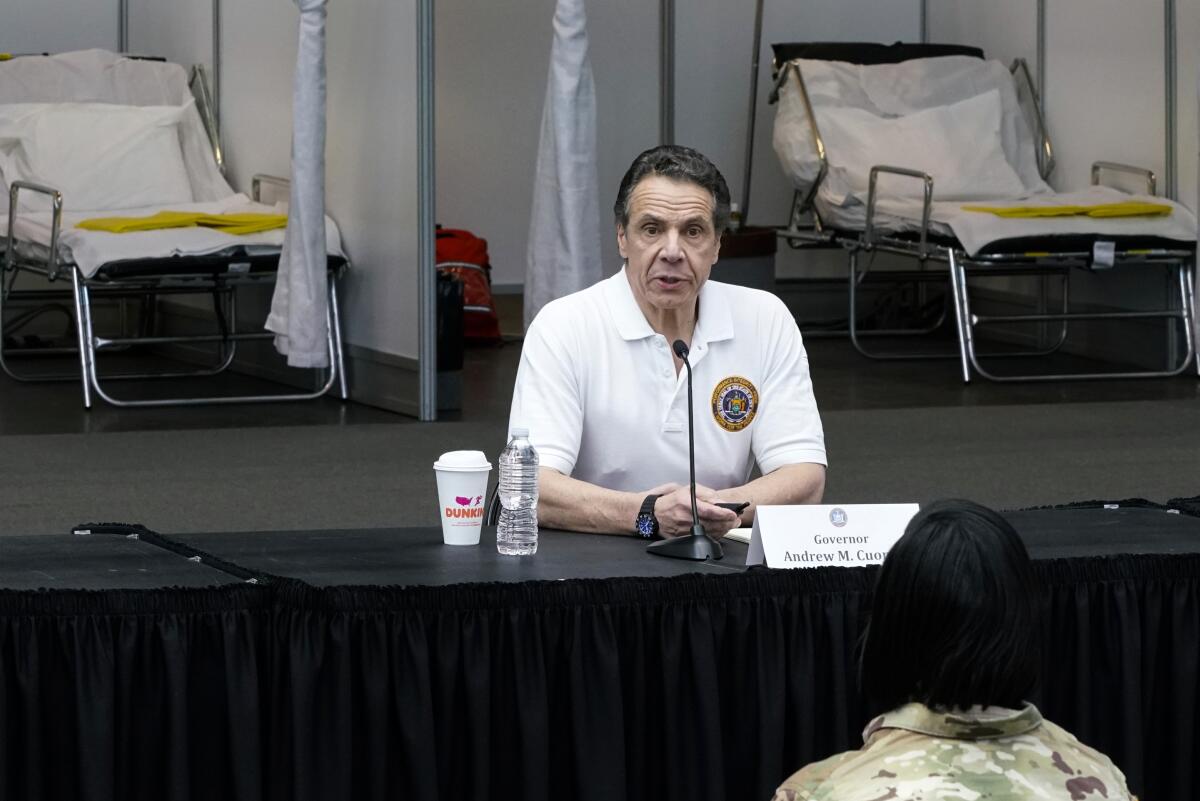
Cuomo also said he’d begun talks with the governors of New Jersey and Connecticut about starting to plan a gradual return to normal business, so that the entire region coordinates the reopening of schools and businesses once it’s deemed safe.
“We’re not there yet, but this is not a light switch that we can just flick one day and everything goes back to normal,” he said.
As that planning begins, though, many New Yorkers are grieving.
“We talk about numbers, but that 731 people who we lost, behind every one of those numbers is an individual, is a family, is a mother, is a father, is a sister, is a brother, so a lot of pain again today for many New Yorkers,” he said.
New Jersey also hit a record of deaths in one day, losing 232 people on Monday, beyond the 1,000 already reported, Gov. Phil Murphy announced.
Disruptive events like the COVID-19 outbreak can end political inertia and result in bold changes
“It’s almost unfathomable, folks, when you look at that — 1,232 lost lives,” Murphy said.
Murphy ordered all state and county parks closed on Tuesday, saying far too many people were gathering in ways showing that they think “social distancing doesn’t matter.”
“Nothing could be further from the truth,” Murphy said.
Louisiana, Pennsylvania and Illinois also each reported a single-day record in fatalities on Tuesday.
The calls for Americans to remain vigilant come amid rising concerns that African Americans appear to be dying from COVID-19 at a rate that exceeds their proportion of the population, particularly in Michigan, Louisiana, Illinois and North Carolina.
“People in higher poverty have higher morbidity rates, and there is a racial component to that, undeniably,” Michigan Gov. Gretchen Whitmer said on SiriusXM radio’s “Signal Boost” show.
Nationwide, public health authorities have released scant data on the racial disparities. U.S. Surgeon Gen. Jerome M. Adams, who is black, said Tuesday that a disproportionately large share of African Americans have underlying health conditions that put them at higher risk for COVID-19.
“We know that blacks are more likely to have diabetes, heart disease, lung disease, and I have shared myself, personally, that I have high blood pressure, that I have heart disease and spent a week in the ICU due to a heart condition, that I actually have asthma and am prediabetic,” Adams told “CBS This Morning.” “So I represent that legacy of growing up poor and black in America, and I and many black Americans are at higher risk for COVID.”
At a White House briefing, President Trump said the initial numbers on racial disparities were “very nasty.”
“It doesn’t make sense, and I don’t like it,” he said.
As hospitals battle the coronavirus, they’re baffled as the Trump administration seizes hard-to-stock medical supplies.
Dr. Anthony Fauci, director of the National Institute of Allergy and Infectious Diseases, said he was very concerned about the impact on African Americans, but that nothing could be done about it in the near term.
In Detroit, a predominantly black city that has been a hot spot for COVID-19, Mayor Mike Duggan reported a record 26 new coronavirus deaths on Monday, bringing the city’s total to 219. But he said the rate at which the daily number of deaths was doubling was starting to slow down, suggesting that stay-at-home orders were working.
Detroit, he said, is “at a very dangerous time if we don’t stick with what we’re doing.”
“We have some really bad days ahead of us,” Duggan said. “We’re going to lose a lot of our neighbors in the coming days. It’s going to get worse before it gets better.”
There remain eight states where governors, all of them Republican, have declined to order residents to stay at home: Oklahoma, Arkansas, Nebraska, Iowa, North Dakota, South Dakota, Wyoming and Utah. Several other Republican governors have imposed such orders in the last few days in their states: Florida, Mississippi, Alabama and Georgia. South Carolina’s order took effect Tuesday.
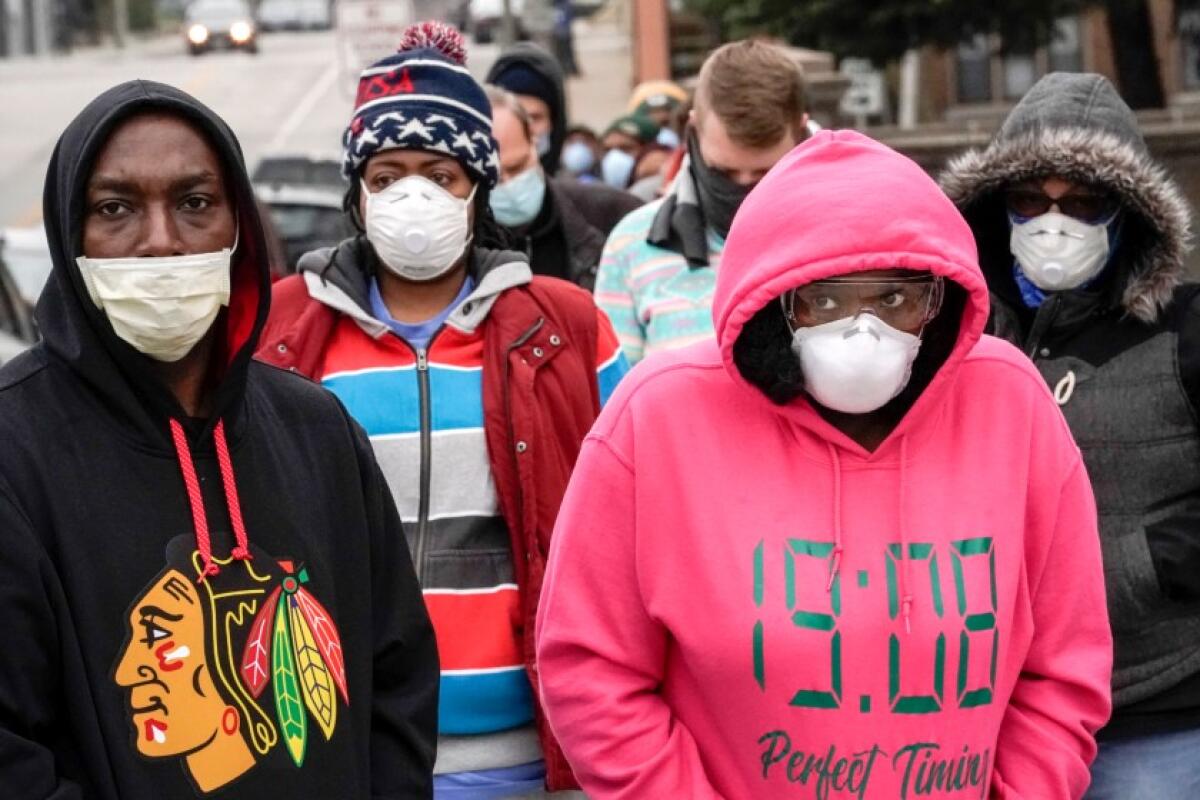
In Georgia, Gov. Brian Kemp on Friday ordered the state’s beaches reopened, superseding local jurisdictions’ attempts to close them.
In Wisconsin on Tuesday, gloved and masked voters lined up by the thousands in defiance of the Democratic governor’s stay-at-home order to vote in the presidential primary and other contests after Republican lawmakers refused to postpone the election and courts declined to allow changes.
The Supreme Court could be asked to review the issue.
More to Read
Get the L.A. Times Politics newsletter
Deeply reported insights into legislation, politics and policy from Sacramento, Washington and beyond. In your inbox twice per week.
You may occasionally receive promotional content from the Los Angeles Times.
